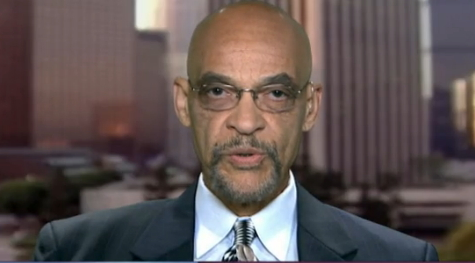Earl Ofari Hutchinson
Trump’s never-ending rap of Special Counsel Robert Mueller and his pending report as a “witch hunt” is nothing more than PR fluff. This isn’t how Trump will gut, water down, or ground the report into the pavement. He’ll use some variation of the tried and true canard that presidents back to George Washington have hid behind when it comes to hiding or protecting damaging, embarrassing, secretive, or outright potentially incriminating information from the public. Trump will cite executive privilege. He craftily began setting it up by firing former Attorney General William Sessions who wouldn’t play ball when he recused himself from the Mueller investigation.
His temporary replacement as acting Attorney General, Matthew Whitaker, made it clear that he’d have absolute authority over what, when, or if the final Mueller report would be released. Trump’s permanent Attorney General William Barr has pretty much followed the same script with one slight variation on that line. That’s his babe in the woods claim that he doesn’t know what Mueller will come up. The implication being that there’s some openness on his part toward transparency with the report.
This is a smokescreen. Trump’s attorney are working overtime to find something to hinge the executive privilege claim on to make the report go away. It’s a powerful weapon. But it’s not invincible. Courts have ruled against Clinton, Bush Jr. and Obama in several instances when they tried to invoke executive privilege to shield documents from public and congressional perusal. And most famously, Nixon lost his battle to scuttle any release of the tapes that caught him in red handed lies about his role in the Watergate crimes.
However, the courts at the same time did not challenge the right of presidents to invoke executive privilege if they could make the case that release of documents would imperil national security or impede ongoing investigations—criminal or otherwise. The biggest ace card that Trump will have in citing executive privilege as a cover to make Mueller go away is the blurred lines between what and when a president can use executive privilege and when he can’t.
There is no hard and fact standard on that. There have been a few half-hearted efforts by Congress to try and establish a clear standard on its use. But those efforts have gone nowhere, and probably never will. And even if they did presidents could, and likely would, ignore the standards anyway and continue to cite national security concerns and presidential prerogative to invoke executive privilege to shield whatever information he considers potentially damaging.
The House vote without a single dissent for the full pubic release of the Mueller report was more symbolic than anything else. It has absolutely no legal weight with what Barr legally can do with the report.
House Democrats will try to have something to say about that. They chair key intelligence and oversight committees with subpoena power. Presumably they’ll use that to get some, or all, of the report in their hands for a look and, of course, public release. If, or more likely, when Barr counters with the claim that there are national security issues at stake that any public release could jeopardize, it will ignite yet another war between Democrats and the Trump team over the report.
What it really boils down to is whether there is anything in the report that actually fingers points Trump for potentially criminal actions; actions that could be indictable; such as obstruction of justice and/or collusion with Russian operatives in the hijacking of the 2016 presidential election.
So far, the only thing that’s certain is that Mueller has brought a slew of charges against several former key Trump presidential campaign players and his attorney and has looked hard at Trump’s financial dealings. The only thing that has connected Trump to Russian sabotage of the election is the oft cited meeting between Trump Jr. at Trump Tower with Russian operatives in the run-up to the 2016 election.
The operative word here is “indirect” since Trump wasn’t at the meeting, denies any knowledge of any talk about smear tactics to be used against Hillary Clinton, and Trump Jr. has blown it off as simply a routine business meeting. The only other possible incriminating tidbit is Trump‘s firing of former FBI Director James Comey when presumably he refused to shut down the Russia probe.
These and other tidbits that Mueller could come up with that at least hint of criminal liability on Trump’s part will be dissected line by line with a fine tooth comb by White House attorneys and Barr to determine if there is anything there that can be cited as having damaging national security implications. The tipoff that this is exactly what will happen came from Barr when he told senators at his confirmation hearing that “someone” could make a claim of executive privilege about the report. There’s no guess as to who that someone will be.
Earl Ofari Hutchinson is an author and political analyst. He is the author of The Russia Probe: What Did Trump Know, And When Did He Know It? (Middle Passage Press) https://www.amazon.com/dp/B07L46G65XHe is a weekly co-host of the Al Sharpton Show on Radio One. He is the host of the weekly Hutchinson Report on KPFK 90.7 FM Los Angeles and the Pacifica Network.

